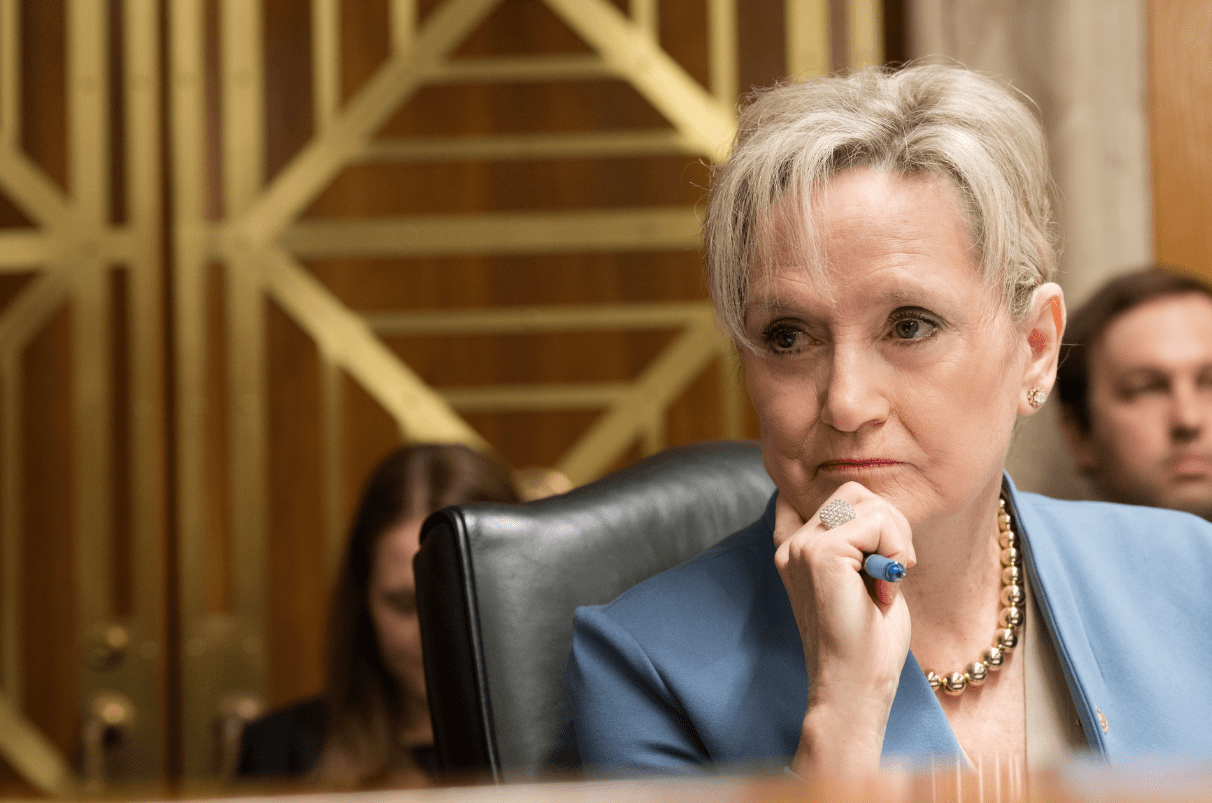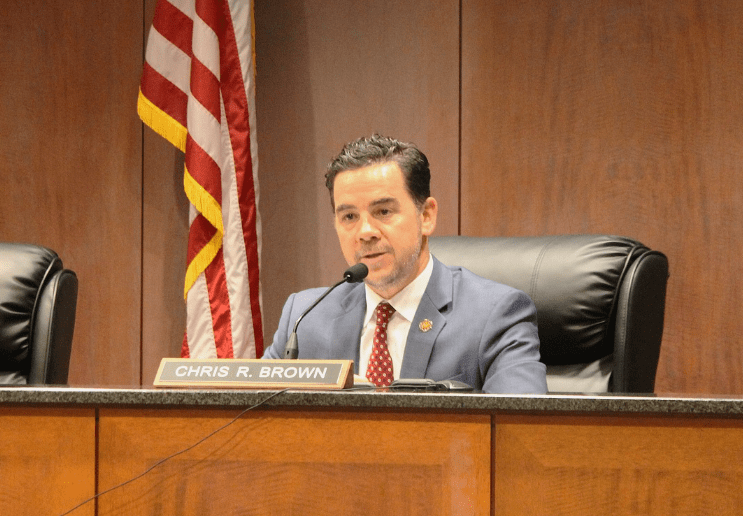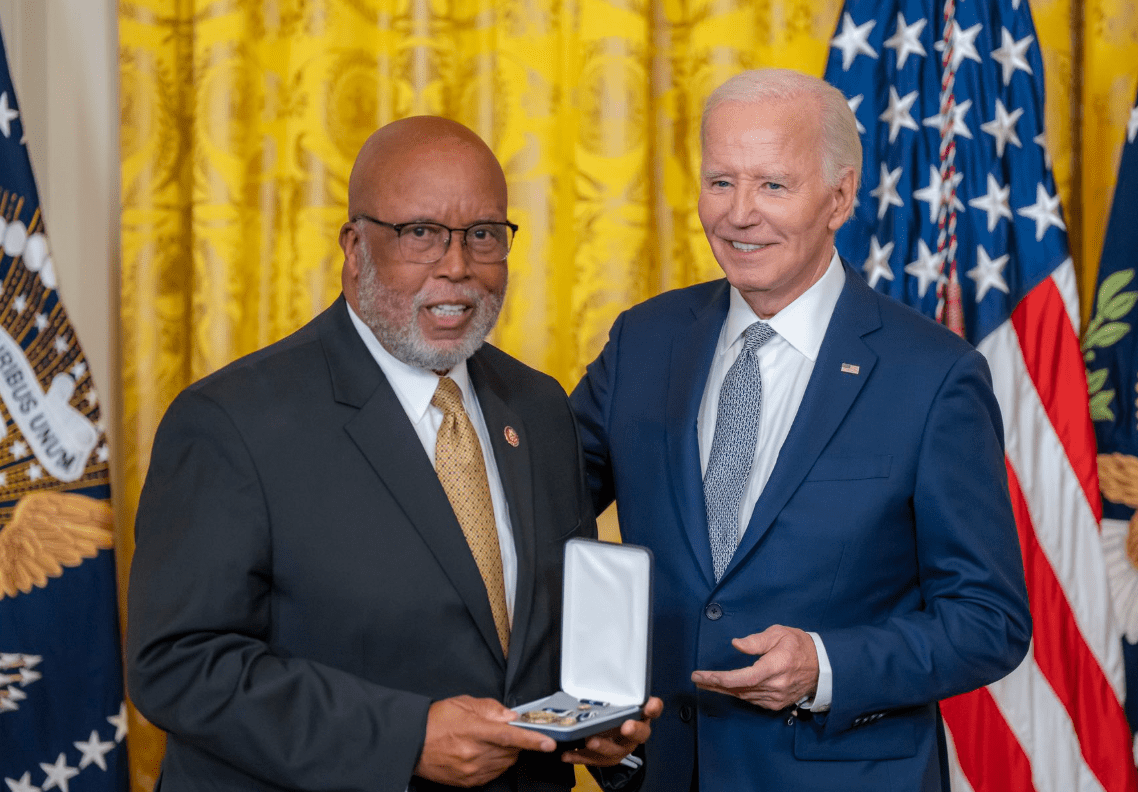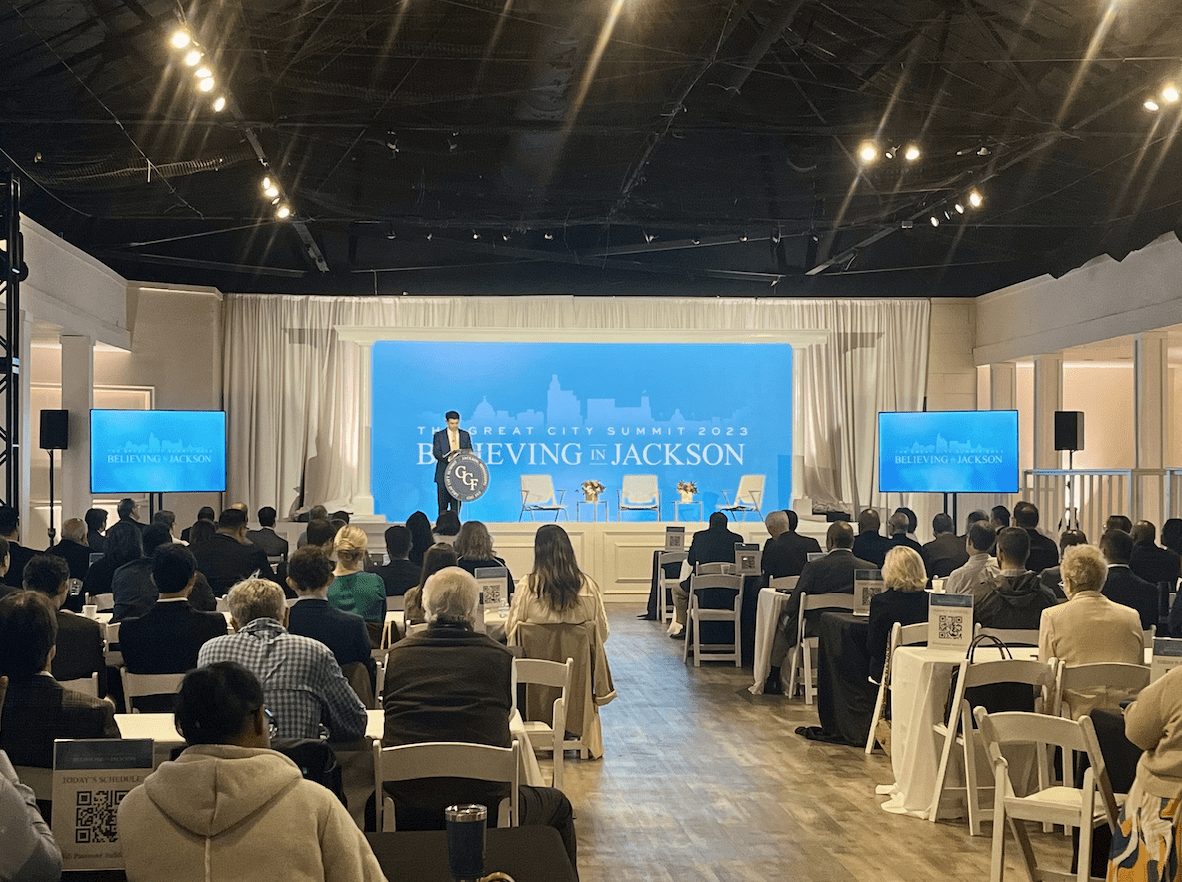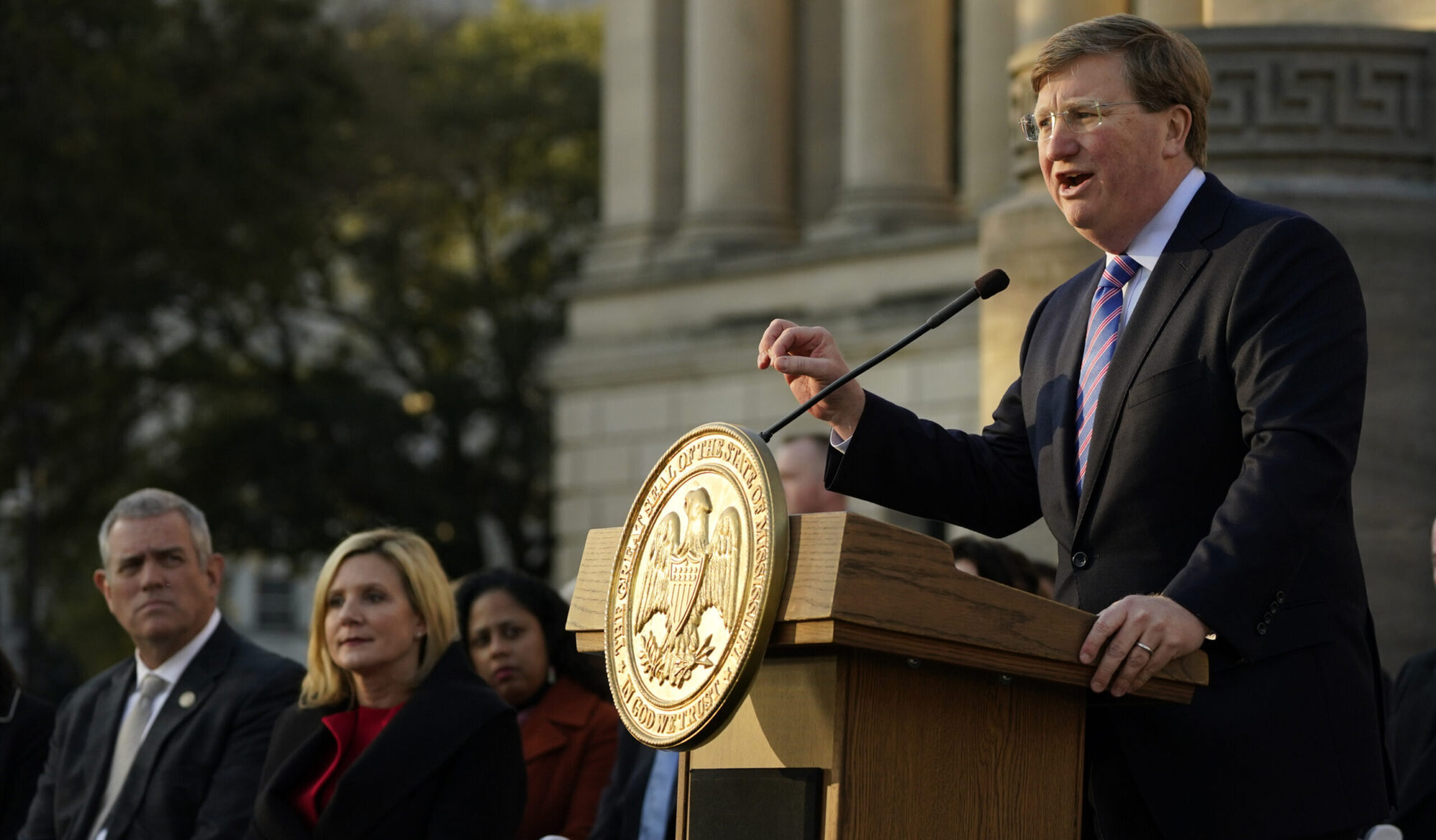
FILE - Mississippi Gov. Tate Reeves says during his State of the State speech on Jan. 25, 2022, at the state Capitol that he supports a proposal to phase out the state income tax. House Speaker Philip Gunn, right, and the governor’s wife, Elee Reeves, listen to the speech. (AP Photo/Rogelio V. Solis, File - Copyright 2022 The Associated Press. All rights reserved.)
Governor Reeves, Lt. Gov. Hosemann, and Speaker Gunn view the recognition as proof that their economic policies are bearing fruit. Democratic gubernatorial challenger Presley took a different tact, criticizing Reeves’ leadership.
The American Legislative Exchange Council (ALEC) released its annual Rich States, Poor States: ALEC-Laffer State Economic Competitiveness Index on Thursday. Mississippi fared well, ranking 22nd among states in economic outlook.
The report is prepared by noted economists Art Laffer (a key architect of President Ronald Reagan’s economic policy), Stephen Moore (founder of Club for Growth and an economic adviser in the Trump Administration), and Jonathan Williams (ALEC’s executive vice president). It provides an Economic Outlook Ranking based on a state’s current standing in 15 policy categories as well as a Performance Ranking based on a state’s gross domestic product, absolute domestic migration, and non-farm payroll employment.
“Generally speaking, states that spend less, especially on income transfer programs, and states that tax less, particularly on productive activities such as working or investing, experience higher growth rates than states that tax and spend more,” the report notes. “This ranking details states’ individual performances over the past 10 years based on this economic data.”
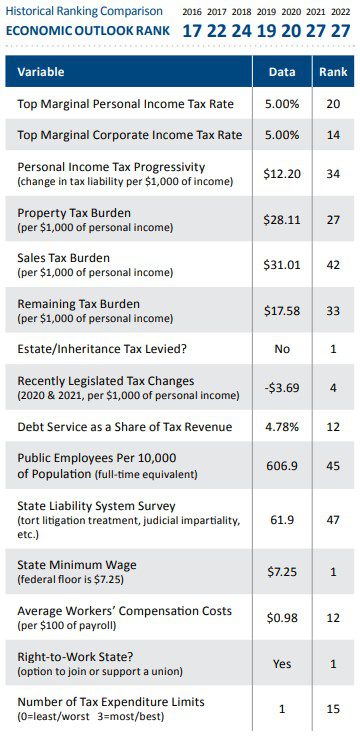
Mississippi’s 22nd overall ranking for economic outlook moves it up five spots from last year’s 27th place ranking.
As for the 15 specific policy variables that make up these rankings, those include such measures as personal and corporate income tax rates, the tax burden on personal income, the number of public employees, and state debt service requirements, among other factors. You can see the variables and how Mississippi performed on each in the embedded table.
Separately, the Magnolia State was listed as 37th in the Economic Performance Rankings this year, moving up three spots from the previous year. Mississippi came in 40th for State Gross Domestic Product, 36th for Absolute Domestic Migration, and 28th for Non-Farm Payroll Employment.
Governor Tate Reeves (R), Lt. Governor Delbert Hosemann (R) and Speaker Philip Gunn (R) all expressed that they were glad to see Mississippi improving in the rankings and attributed the upward movement to conservative policy.
“This is further proof that free market principles and fiscally conservative budget management practices work. We’ve cut taxes, eliminated government red tape, and made historic investments in skills training for Mississippians,” Governor Reeves told Magnolia Tribune. “As a result of our conservative efforts, Mississippi is in the best fiscal and financial shape in its history.”
The Governor went on to say that last year, Mississippi saw record private investment in the state to the tune of $6 billion while unemployment is at an all-time low as more Mississippians are working than ever before.
“Long story short, we’re doing what it takes to foster a business-friendly environment in Mississippi and our rise in the rankings reflects that,” Governor Reeves said.
Speaker Gunn attributed the state’s rise to the movement toward eliminating the income tax. Last year, lawmakers agreed to phase out the 4% bracket and Governor Reeves signed the bill into law. It provides nearly $525 million in income tax relief to Mississippians. Both Reeves and Gunn have called for the full elimination of the state income tax, although it did not happen in this year’s legislative session.
“This new ALEC report shows the benefit of moving toward income tax elimination. We took big steps in that direction with last year’s largest income tax cut in Mississippi history – and it is bearing fruit,” Speaker Gunn said on Thursday. “I want to congratulate my legislative colleagues on passing conservative tax reform that is getting noticed across the nation.”
Lt. Governor Hosemann also touted last year’s tax cut, adding that lawmakers have worked to reduce the state’s debt.
“We have enacted the largest tax cut in the state’s history, reduced the state’s debt by $546 million, and prioritized and funded economic and workforce development,” Hosemann told Magnolia Tribune. “Now, research is proving our work is paying off. Mississippi is moving in the right direction—and we are open for business.”
However, not everyone shares the perspective of the state’s top three elected officials. Magnolia Tribune also reached out to Brandon Presley, the presumptive Democratic nominee for Governor this year.
Presley, who presently serves as Northern District Public Service Commissioner, did not respond directly to the rankings contained in this year’s Rich States, Poor States report. Presley’s campaign Communications Director Michael Beyer did, however, take the opportunity to criticize their November opponent with what has become a common refrain, suggesting that Governor Reeves is disconnected from voters and, through veiled innuendo, implying complicity in Mississippi’s welfare scandal.
“While Tate Reeves’ wealthy buddies, cronies, and lobbyist friends think Mississippi is working great for them, Mississippi families are wondering why millions of their taxpayer dollars are going to Tate Reeves’ personal trainer and celebrity friends while their hospitals are threatened with closing,” Beyer, Presley’s spokesman, said.
To date there has been no evidence of any impropriety on the part of Reeves in connection with the welfare scandal.
ALEC is comprised of nearly one-quarter of the nation’s state legislators. It boasts being America’s largest nonpartisan, voluntary membership organization of state legislators dedicated to the principles of limited government, free markets and federalism. This is the 16th annual economic competitiveness report ALEC has released.

